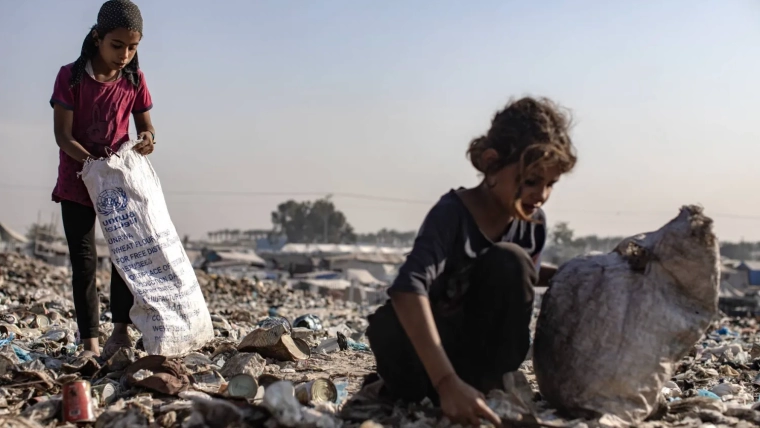On Thursday, the Foreign Ministers of Egypt, the United Arab Emirates, the Kingdom of Jordan, the Kingdom of Saudi Arabia, the Sultanate of Oman, the Emirate of Qatar, the State of Kuwait and the Kingdom of Morocco issued a joint statement condemning the Israeli occupation’s targeting of civilians and its violations of international law and human rights.
The communication condemned “individual or collective forced displacement, as well as the policy of collective punishment in the Gaza Strip while affirming the rejection of any attempts to liquidate the Palestinian cause at the expense of the Palestinian people and the peoples of the countries of the region, or the displacement of the Palestinian people outside their land in any way, as it is a grave violation of international humanitarian law and amounts to “War crime.”
The Arab countries that signed the statement called on the UN Security Council to work to ensure and facilitate rapid, safe, and sustainable access to humanitarian aid to the Gaza Strip without obstacles, and to oblige all parties to an immediate and permanent ceasefire in the Gaza Strip, stressing that “failure to describe flagrant violations of international humanitarian law It is tantamount to giving the green light for these practices to continue, and is complicity in their perpetration.”
The statement stressed the need to commit to working to ensure full respect for the Geneva Conventions of 1949, including with regard to the responsibilities of the occupying power, and also the importance of the immediate release of hostages and civilian detainees, and ensuring that they are provided with safe, dignified and humane treatment consistent with international law while emphasizing the role of The International Committee of the Red Cross in this regard.
The statement also stated that “the absence of a political solution to the Palestinian-Israeli conflict has led to repeated acts of violence and suffering for the Palestinian and Israeli peoples and the peoples of the region,” and stressed the importance of the international community, especially the Security Council, assuming its responsibilities in order to resolve the conflict and implement the two-state solution on the basis of UN resolutions, and United Nations, in a way that guarantees the establishment of an independent, sovereign, contiguous and viable Palestinian state on the pre-June 1967 borders, with East Jerusalem as its capital.




